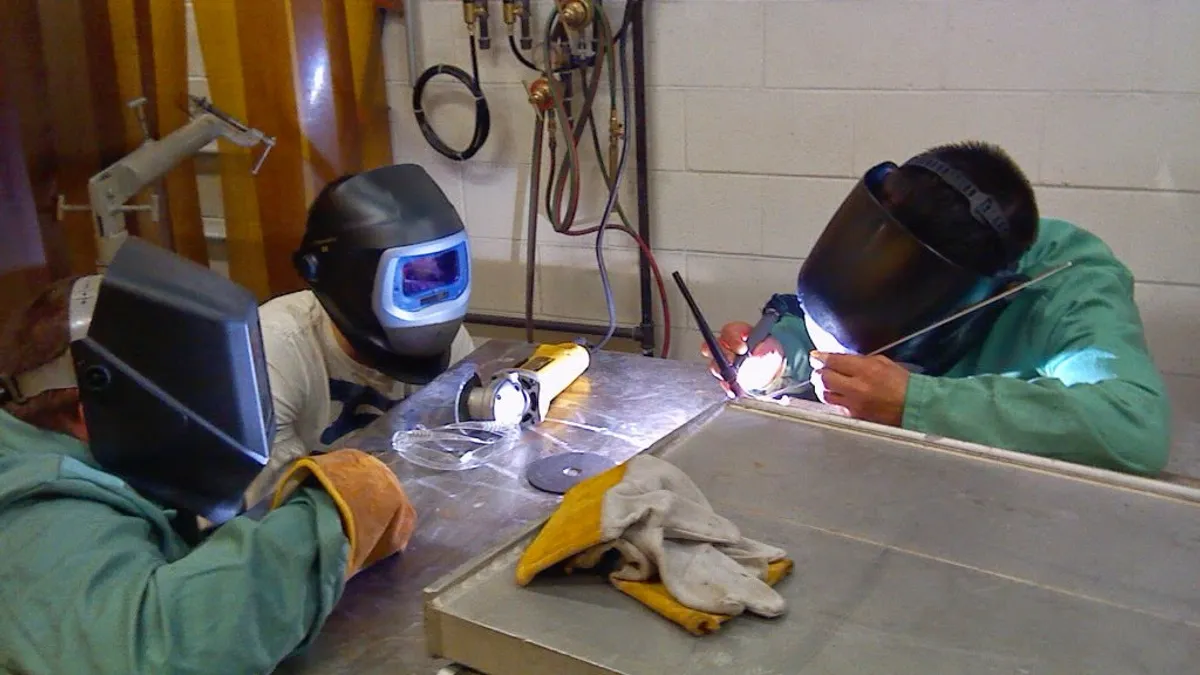Dive Brief:
- Some districts in Colorado will allow small-group instruction to begin despite a statewide closure of schools until the end of the academic year, Chalkbeat reports. The decision was announced as Gov. Jared Polis laid out a plan to start reopening the state in phases beginning Monday.
- Special education services and welding classes are examples of those where students would benefit from in-person instruction, and the state announced one-on-one instruction is also allowed as long as public health departments agree to it.
- The 1,300-student Fremont RE-2 School District will hold in-person small-group tutoring sessions at its high school, with participation voluntary for students. Teachers with health risks, who are caring for someone who has health risks, or who don’t feel comfortable returning to work will not be required to participate.
Dive Insight:
The Fremont district also plans to use this voluntary experience as practice for when schools reopen with social distancing during lunches, passing periods and classroom time. The district expects to "toggle back and forth" between in-person and online learning. The Colorado teachers union doesn’t support the idea of bringing small groups of students together, and Colorado Education Association President Amie Baca-Oehlert told Chalkbeat it's best for districts to refrain from scheduling student-teacher face-to-face interactions for the time being.
Fremont Superintendent Brenda Krage acknowledged teachers’ apprehension, but when school reopens, she said, teachers will have to return. For now, Krage is trying to gauge the interest in returning to school and figure out which students are interested.
Parents of special education students nationwide are still struggling to find resources to help their children, who might have had speech therapy, counseling and other services at school. Allowing for special education students to return to schools in small group settings may ease some of those frustrations if it can be done safely, experts say.
Meanwhile, Miami-Dade Superintendent Alberto Carvalho is bracing for “unprecedented, historic academic regression,” especially among the most fragile students, he told USA Today. Carvalho said the district had started planning for the shutdown as early as late December and early January, when it became clear coronavirus was disrupting life in Asia.












